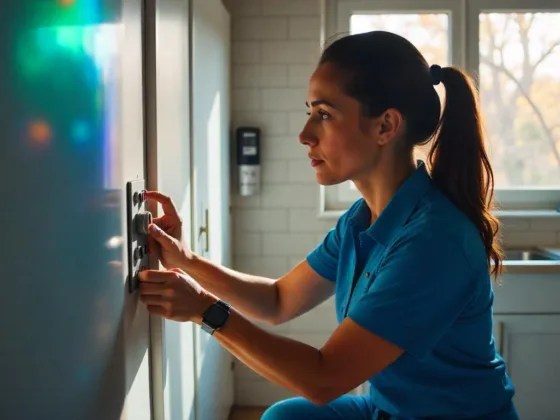Table of Contents Show
Engaging in DIY home upgrades offers several benefits to a homeowner. In addition to potential cost-savings, homeowners can also benefit from developing their skills, learning new things, and the self-satisfaction of accomplishing a task.
However, it’s essential to understand when DIY is appropriate and when it’s time to call a professional.

Sometimes, taking the DIY approach costs more money, time, and stress in the long run. Here are some considerations to help you determine whether you should DIY or call an expert for your next home improvement project.
Assessing Your Skill Levels
While assessing oneself can be difficult, it’s an important first step when deciding whether or not you should DIY your next project.
Be objective, and determine whether your handy skills are sufficient for the complexity of your project.
Is this a project you could complete with guidance from a YouTube tutorial, or would you need months of hands-on practice to get it right?
It’s also essential to assess the other factors that could influence your success. If you struggle to focus for longer than a few hours, and this project would take an entire weekend, it might be better to call an expert.
If you tend to get frustrated and rush through things, consider how that might impact your success.
Keep in mind that you may start the project feeling confident and change your mind as it progresses. Also, there’s no shame in calling for help after you’ve already started.
Read Also:
Assessing the Costs and Time
Another critical consideration when determining the validity of taking a DIY approach is the cost and time associated with completing the project.
Compare the cost of materials, tool rentals, and so on with hiring an expert who already has the skills and tools available to complete the project.
It’s also important to consider the long-term costs of failure. For example, if you make a mistake swapping out pipes, you could be left paying for water damage and repairs.
Consider the time commitment and opportunity cost of taking a DIY approach as well. Is it worth spending extra time completing this project, or are there other things you could do that offer more value? Opportunity cost isn’t always a tangible, quantitative equation.
You might be able to complete the project on your weekend off, but that could mean sacrificing time spent with your family.
There’s no black and white answer when it comes to opportunity cost; it’s purely subjective.
Finally, consider whether the project necessitates immediate attention or if it could be picked away at over time.
According to Clarke Contractors Inc., tasks like water damage repair, mold removal, and exterior repairs for storm damage should be addressed as soon as possible. If that’s the case, calling an expert is a must.
Assessing the Special Skills Required
Another consideration when determining whether to hire an expert or take a DIY approach is the need for particular skills.
Consider installing countertops, for example. If you’re a handy person, you may have no trouble measuring and installing basic laminate countertops.
However, quartz countertops are nuanced and fragile, requiring advanced knowledge and skills for proper installation.
The same applies to projects in which special tools are required. If you don’t have experience and training with those tools, it could negatively impact the outcome (and your safety).
Assessing the Long-Term Safety
Perhaps the most important consideration when determining whether or not to DIY a project is the long-term safety implications.
Tasks like refinishing your stairs or installing click-tile aren’t likely to impact your personal or household safety.
Improper wiring when installing a new outlet or climbing on a roof to install new shingles could have potentially life-altering consequences.
It’s essential to approach your project with the worst-case scenario in mind. History is filled with stories of houses that don’t succumb to their dangerous wiring or structural damage.
However, it’s not worth the risk of becoming a cautionary tale when your family’s health and safety are involved.
Default DIY Projects
If you’re still wondering what constitutes a suitable DIY project, here are a few common tasks you may feel comfortable handling.
Painting
While there are several benefits to hiring a professional painter, most people can handle this task safely and effectively while saving money. The exception is when you’re painting to stage your home or if you have high ceilings.
Installing Laminate or Click-Tile
While hardwood flooring and ceramic tile installation is tricky, installing laminate and click-tile flooring is fairly straightforward. Take your time, invest in the right tools, and get the job done.
Simple Landscaping
Landscaping is one area of home improvement that almost anyone can engage in. While you might need a specialist for larger tasks, like grading and drains, installing gardens and water features is a great DIY task.
Changing Hardware
Simple hardware changes are also ideal for DIY enthusiasts. There’s no need to call an expert to swap out handles and fixtures.
Default Pro Projects
There are some projects that should always be left to an expert, regardless of your perceived skill level. Here are a few examples of pro-only projects.
Structural Changes
Before you start changing the structure of your home or taking down walls, you’ll need input from a contractor. Accidentally removing a supporting wall could destroy your home, put your family at risk, and void your insurance.
Electricity
Electrical work is another task best left to skilled tradespeople. Handling electrical work yourself puts you at risk for a deadly shock and could put your home at risk of an electrical fire.
Plumbing
Plumbing work is complex and often leads to uncovering bigger issues. As damaging your plumbing can lead to some of the most costly repairs you can have in a home, it’s better to call an expert right away than to try a DIY approach.
Doors and Windows
Door and window installation is another area that seems simple but is really quite nuanced. It takes a skilled professional to guarantee even, draft-free installation.
Cabinetry and Specialty Countertops
While access to RTA cabinetry has made this task more accessible to the layman, it’s best to trust an expert with hanging cabinets — especially when you’ll be putting stacks of heavy dishes inside them.
Use this guide to determine whether you should DIY or call an expert. Sometimes the perceived cost savings aren’t worth the long-term expenses or risks. When in doubt, call a professional.









